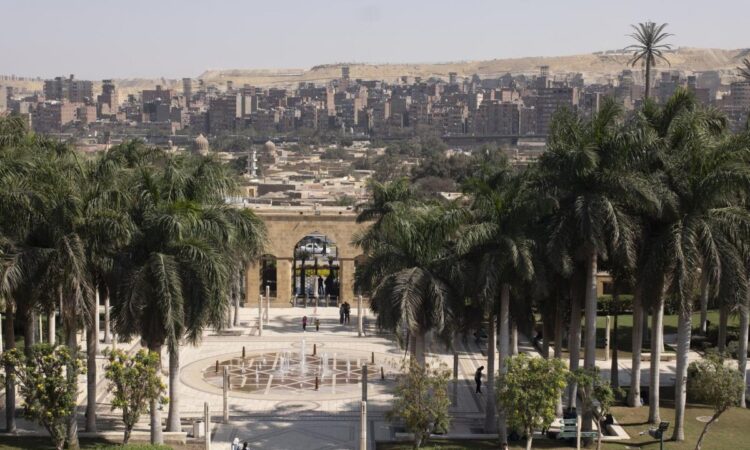
(Bloomberg) — The European Union pledged a €7.4 billion ($8.1 billion) aid package for Egypt, the latest push by the international community to buoy the struggling economy of a North African nation seen as vital to regional stability.
Most Read from Bloomberg
The mix of grants and loans, announced by European Commission President Ursula von der Leyen on Sunday, would be disbursed through 2027 and help the nation of some 105 million people overcome its worst economic crisis in decades. Joining her in Cairo were leaders from countries including Italy, Greece and Cyprus.
Read More: The UAE’s $35 Billion Investment in Egypt Is a Geopolitical Flex
“We share strategic interests in stability and prosperity,” Von der Leyen said, speaking at the event hosted by Egyptian President Abdel-Fattah El-Sisi. “Given your political and economic weight, as well as your strategic location in a very troubled neighborhood, the importance of our relations will only increase over time.”
That focus was evident in the decision by the EU to upgrade its relationship with Egypt, whose struggles have been exacerbated by conflicts in neighboring Gaza and Sudan, to that of a “strategic partnership.”
“The stability and prosperity of Egypt is of critical importance to the European Union,” Greek Prime Minister Kyriakos Mitsotakis said at a televised press conference after the deal was formally announced. Other leaders, including from Austria and Italy, stressed the issue of migration, arguing that sustainable cooperation was needed to curb the practice that has become a major issue for the EU.
Also at the forefront of talks was the conflict between Israel and Hamas. Von der Leyen said all were “extremely concerned” about the war in Gaza and it was critical to reach a cease-fire agreement given a humanitarian situation in the territory that Greece’s Mitsotakis described as “simply unacceptable.”
Detailing the funding program, the EU cited priorities such as economic stability, investments and trade, migration and security and laid out six pillars that included democracy.
Facing a dire shortage of foreign exchange, Egypt was on the brink of economic disaster until it announced a $35 billion investment from the United Arab Emirates in late February. That paved the way for a long-awaited devaluation of the Egyptian currency earlier this month and an expanded International Monetary Fund loan of $8 billion.
The EU package includes €5 billion of concessional loans and €1.8 billion of investments in projects related to renewable energy and food security. There’s also €600 million in grants, a third of which is earmarked for “migration management.”
Egypt has become an increasingly important supplier of natural gas to Europe as it seeks alternatives in the wake of Russia’s invasion of Ukraine. It’s also a core transit country for migrants seeking to cross to Europe.
Egyptian Finance Minister Mohamed Maait has said new funding agreements are also expected with the World Bank, UK and Japan.
–With assistance from Sotiris Nikas and Ewa Krukowska.
(Updates with comments from officials.)
Most Read from Bloomberg Businessweek
©2024 Bloomberg L.P.






